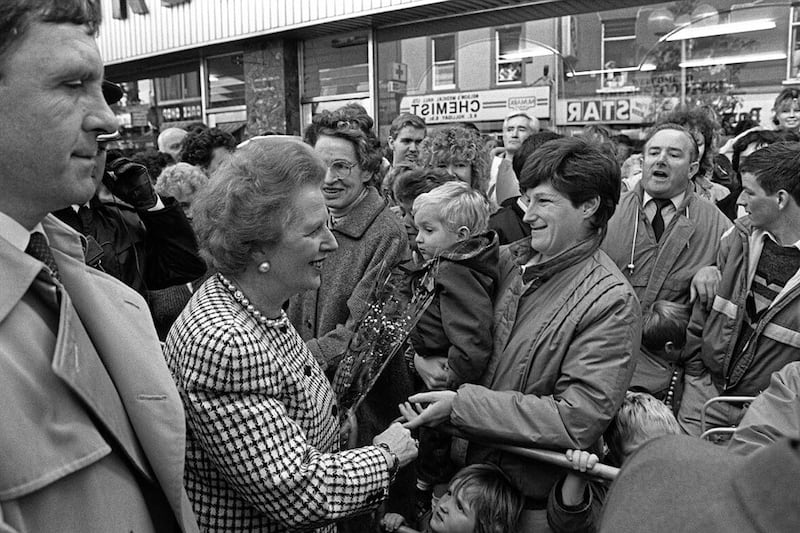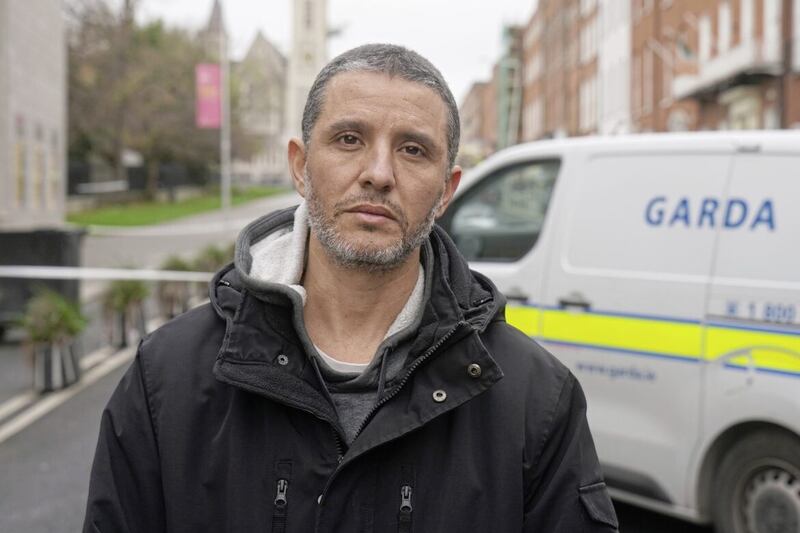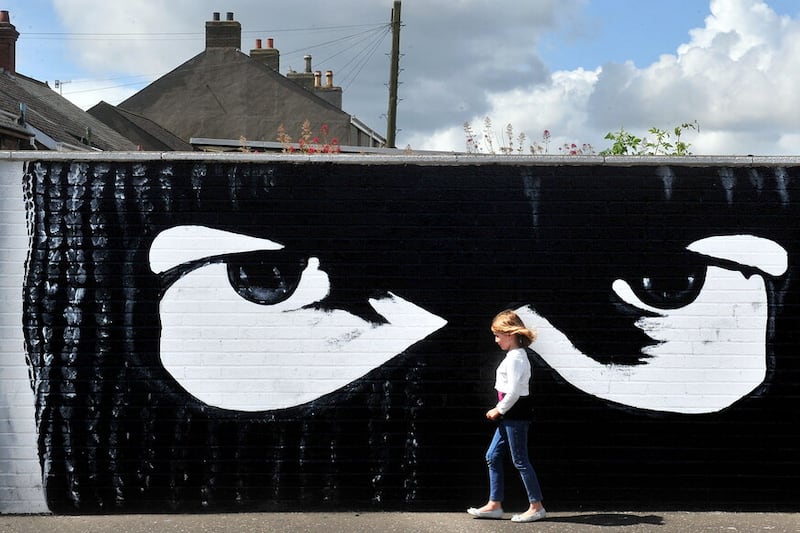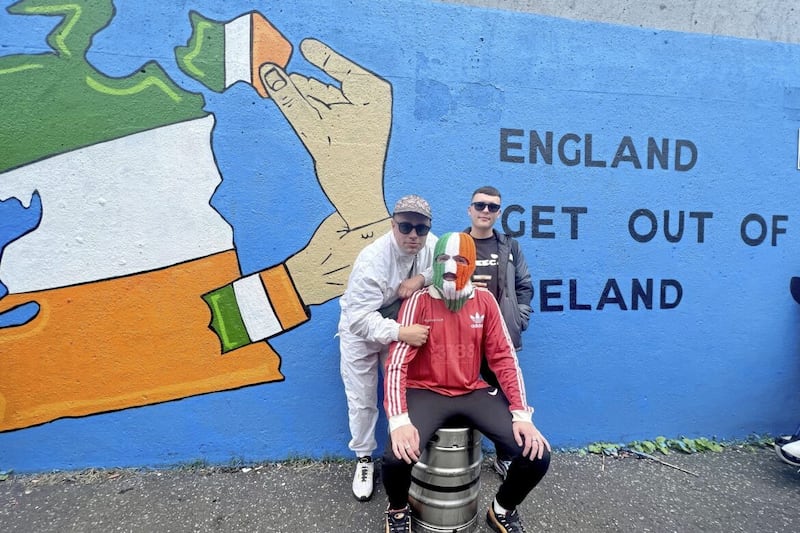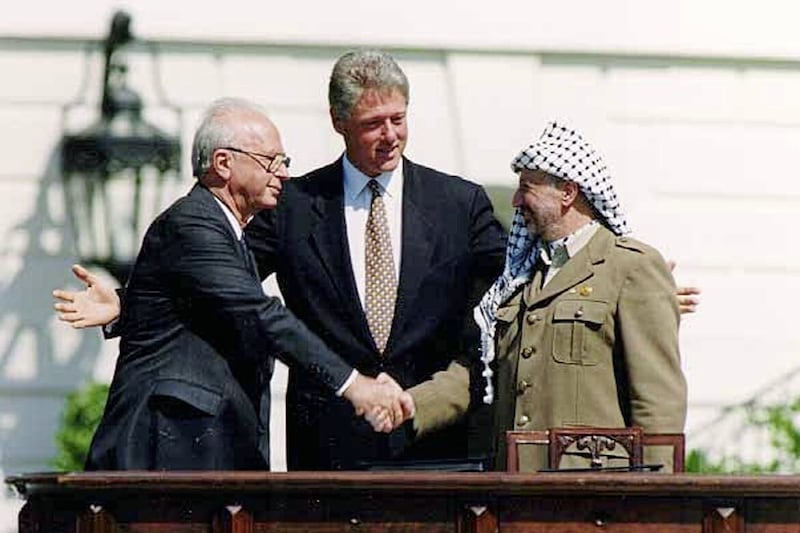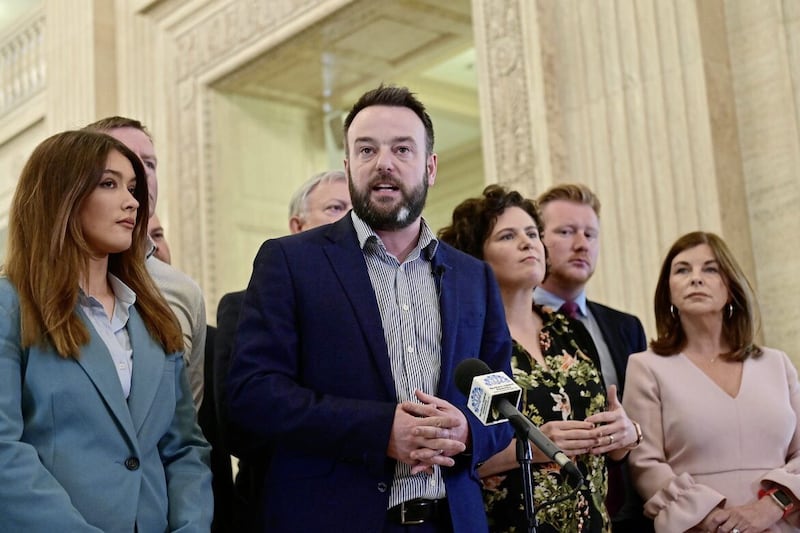Nigel Dodds, now Lord Dodds of Duncairn, is a political enigma.
He’s personable, courteous and earnest. Qualities sadly lacking in much of modern politics.
That said, his politics are regressive, negative and, more than often, on the wrong side of history.
Last week he ably demonstrated this when he declared the Windsor Framework had failed the DUP’s seven tests.
This appeared to be in reaction to a House of Lords report which stated that despite the extra paperwork for some, the Windsor Framework was definitely an improvement on the NI Protocol.
The DUP is now clutching at straws.
Read more:
Newton Emerson: Prospects of Stormont return receding
Mary Kelly: If only there was a brave leader who could knock a few DUP heads together
John Manley: Hopes of a breakthrough fade as British government and DUP dither
At Westminster, they have managed to finally complete the marginalisation of their party from the Conservative Party.
Most Tory MPs were always uncomfortable with any relationship with the DUP.
Even those Conservatives who disagreed with former Prime Minister Theresa May have never forgotten how she was treated and spoken to at the despatch box by the baying bullies from the ranks of the DUP.
Parliamentary debate works on the premise of etiquette – not the hectoring style of a Munich bierkeller.
The biggest mistake Mrs May made was in taking the infamous telephone call from Arlene Foster when she was in Brussels negotiating.
May’s officials should have simply told Foster that “the prime minister is busy with matters of international importance” and promptly hung up.
By taking the call, Prime Minister May impaled herself on a self-imposed hook. To paraphrase a Foster comment, she had fed the crocodiles and once their appetite was satiated, they sensed blood. A career crash for the PM.

The DUP, not for the first time, overplayed their hand. May was a proper unionist. She actually succeeded in getting the best possible deal from Europe.
Intransigence always trumps intelligence within the DUP as they frequently mistake tactics for strategy.
Like Augustus Gloop in Willy Wonka, greed always gets the better of the DUP in negotiations with successive British governments. They only see the chocolate river but inevitably are squeezed down a pipe – only to end up in the fudge room.
Now the Tories are tired of them, as proven by sardonic comments about handout mentalities by the NI Minister of State Steve Baker.
The DUP arrogantly believe they can await the arrival of a new Labour government. This is a forlorn hope. There’s zero synergy or sympathy for the DUP within the rank and file of the Labour Party.
None of this should be a surprise.
The DUP, as a party, has lived its entire existence in political denial.
It stood in denial of the equal rights afforded in every other part of the UK. A battle they could never win.
The DUP founder, Rev Ian Paisley, was the greatest political charlatan in modern Irish politics.
He promised to 'Save Ulster from Sodomy’ and failed.
He broke the careers of several liberal unionist leaders by denouncing them in McCarthyite terms as ‘Lundies’.
Paisley detested and ridiculed Catholicism only to later find his party seeking common ground and votes with those followers of the “weasel cardinal” in Armagh and “old red socks” in Rome.
And of course, Paisley once promised to “Smash Sinn Féin”, only to end up very comfortably in government with them for 15 years. Those once chastised became crowned.
The British and Irish governments recognised that vanity and a lust for power was Paisley’s Achilles Heel and, Salome-like, served up the head of David Trimble to clear the pathway to the office of First Minister.
The DUP broke all their shibboleths and their voters turned a blind eye by buying into the empty unionist rhetoric which has spooked them into servile submission since the creation of Northern Ireland.
Lord Dodds is conveniently beyond the reach of the electorate. His DUP colleagues who are MPs and MLAs are not. Their enthralment to the fringes of loyalism will not shield them from the prevailing winds of political change.



